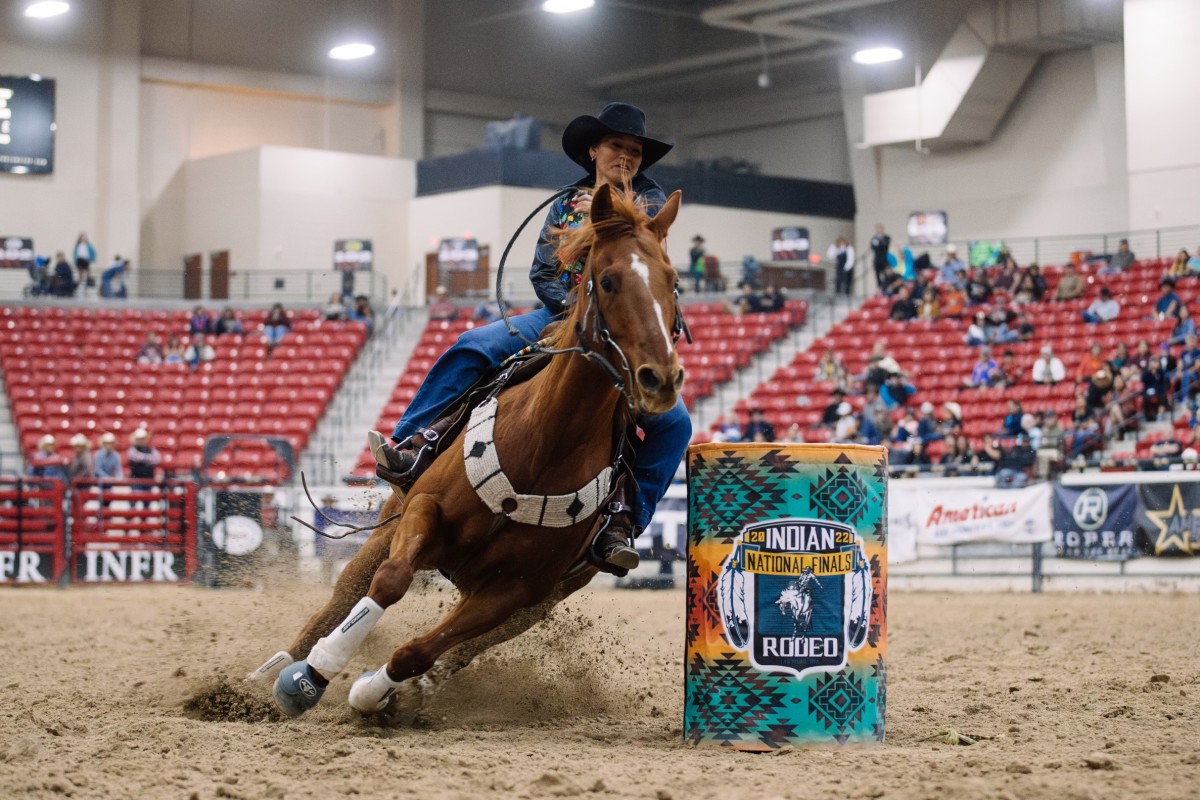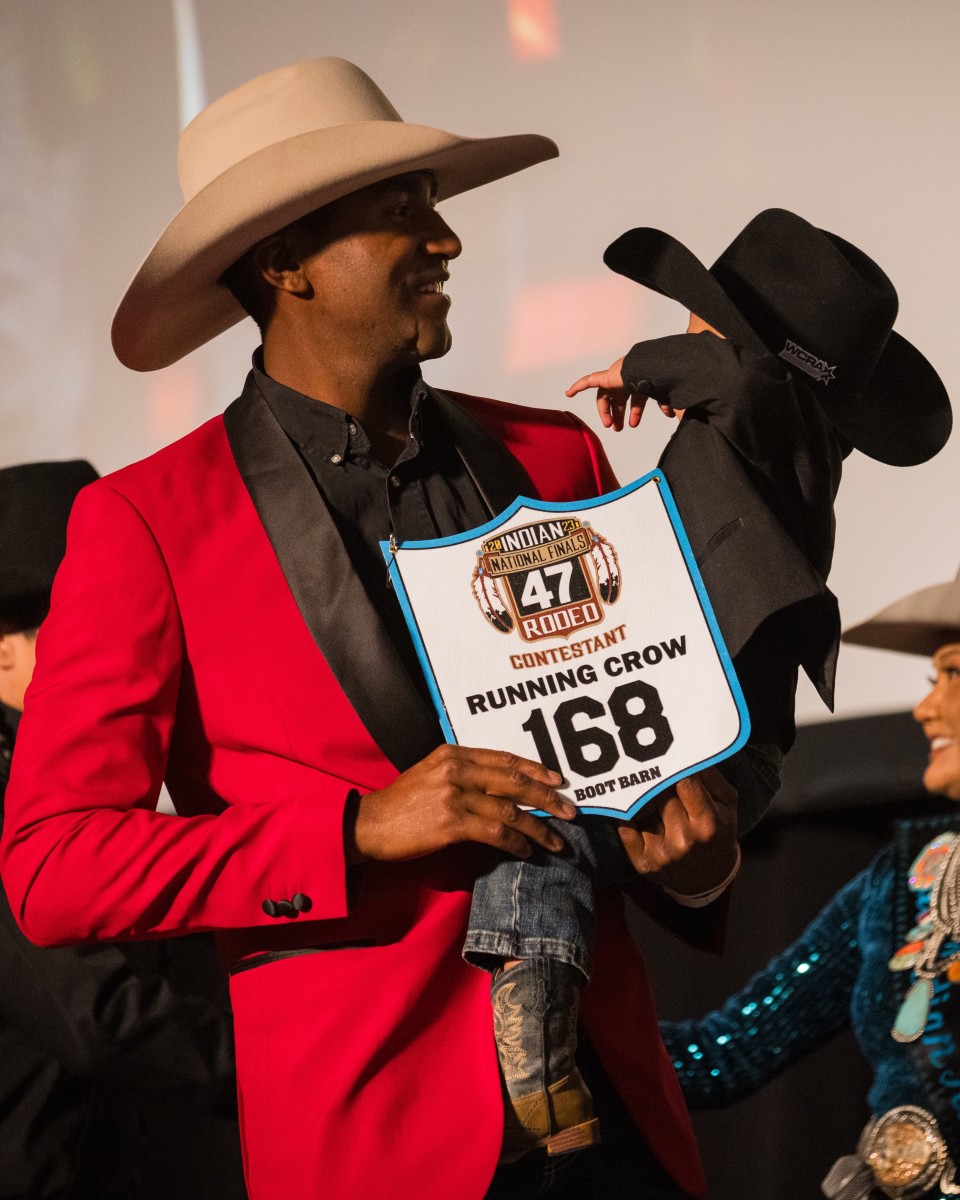Family, History and Tradition: The Makings of the INFR

LAS VEGAS, Nev. - The sound of slot machines fill the lobby of the South Point Hotel, crowds of people file in, though they are walking right past the casino and straight to the arena.
The best of the best Native American rodeo competitors have traveled from their reservations, cities, and even Canada to compete at the Indian National Finals Rodeo.
With over 3,500 members across the U.S. and Canada compete throughout the year all over the nation. After a rigorous season and a last chance qualifier, the top 10 contestants in each event qualify to compete at the INFR.
At the 2022 INFR 50 tribes were represented by over 400 Native Americans winning over $1 million in prizes and money.
This year the INFR held a record attendance of spectators, though the association has never raised the price of tickets. Encouraging families to come and enjoy the tradition while keeping it affordable.
This prestigious event is fully immersed in culture, tradition, and family.
At the beginning of the week the elders hold a ceremony to bless the grounds, contestants, horses and cattle.
Starting each performance traditional Native American songs can be heard along with the Canadian National Anthem, and beautifully sung in the Apache language, the United States National Anthem.
Tradition and culture is so near and dear to the Indigenous people, and in 1976 the founders of the INFR recognized this.
In a time of discrimination among sports leagues against Native Americans, the five founders came together and combined multiple regional Indian Rodeo Association, to create the INFR.

"This need for fairness because of discrimination evolved into this rodeo environment based on those values of family, tradition and culture," said Bo Vocu, president of the INFR. "The tribes put on pow-wows and parades when they have their rodeos, celebrating that tribe and their culture."
Part of the culture is family, those familial ties are very prevalent in every aspect of the INFR. There will be grandkids competing against grandparents and parents along with cousins and aunts or uncles. One of the unique aspects of the INFR is having a junior and senior division.
In 2010 the INFR made it mandatory to have junior and senior events at all qualifying rodeos. This opened the door for the future generation by getting them involved in the sport.

"I come from one of the toughest, rural reservations. Most of the reservations are really rural. No opportunities and few jobs, rodeo provided me with both an opportunity and than a job," said Vocu.
The association offers seniors an opportunity to compete into their golden years. They are legends, heroes and idols in the rodeo industry but don't have to retire and just go to a local jackpot, they still have the opportunity to compete for a world title.
Victor Begay is one of the senior competitors with multiple world titles and also the father of INFR and NFR team roper, Derrick Begay, who won the first round of the 2023 INFR team roping with a 5.12 second run. Derrick Begay will be right back to Las Vegas for the NFR in just six weeks.
Not only does the INFR hold the value of honoring the elders and next generation, but the women are also very involved. The INFR were the pioneers of pushing breakaway roping by adding it to their finals 32 years ago, crowning a champion every year since.
The women are also hazing for the steer wrestlers and bringing cattle down from Montana for the winter.
"We are such an enormous part of it, women are the backbone of the community and we are right their working alongside the men," said Persephone Hooper, Western Shoshone Tribe.
The family aspect is important to the tribes and communities, coming together to celebrate and help each other in many ways. Native Americans have been horseman for many generations and hold the horse in high reverence. This tradition is another staple to why rodeo is so important to the community and culture.
“Most importantly the horse represents the journey of life,” said Wilton Good Striker of the Kainai Blood Tribe and Blackfoot Confederacy, leader of the ceremonial blessing prior to the start of the rodeo. “We ask blessings of the horse to take us away from danger, sickness, to take us to good places and a good life."

Watch the Native American competitors and their equine partners journey through the INFR as it airs on the Cowboy Channel and again next year Oct. 22-27 at the South Point.
